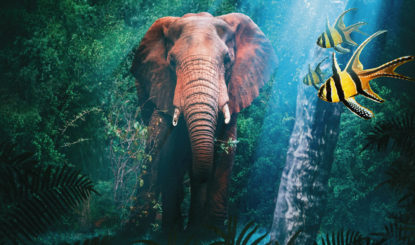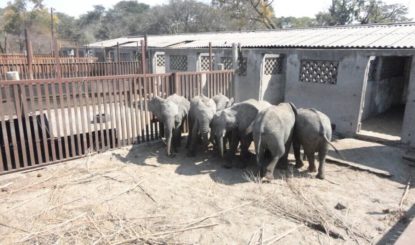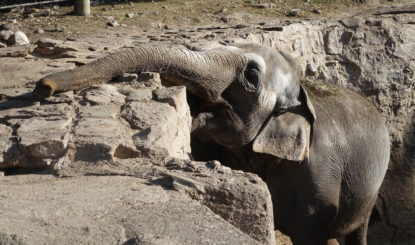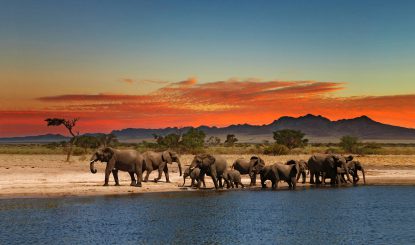Media release: The trade in live elephant calves must be prevented!
Unfortunately, the export of African elephant calves to zoos and circuses throughout the world is extensive – the Convention on International Trade in Endangered Species of Wild Fauna and Flora (CITES) allows for such transactions. Young elephants suffer serious physical and psychological trauma during capture and transport, and later in their alloted zoo. With regard to the CITES Conference of Parties (CoP18), Fondation Franz Weber (FFW) calls for clear guidelines on this trade, specifically to ensure the social well-being of elephants.
CITES is an international treaty that regulates the export and import of wild animals. For some unexplained reason, however, CITES considers zoo-related live animal transactions as “non-commercial”. Therefore, they are not subject to the same strict rules as the rest of the trade in elephant products, such as ivory for instance.
Specifically, CITES allows the trade in live wild-caught African elephants. To this end, Botswana and Zimbabwe have been allowed to send wild elephants to “appropriate and acceptable destinations”, while South Africa and Namibia may export the animals for “in situ conservation programs”. These terms are not clearly defined in their current form. As a result, CITES permits the export of elephant calves to zoos or other facilities that are often unsuitable for elephants and in a manner often at the detriment of the welfare of the animals.
Between 1990 and 2015, 1,774 elephants were exported all over the world, mainly to circuses or zoos and usually to places beyond their natural range. It is estimated that around 530 wild-caught elephants live in captivity worldwide. The main importers are China (29%), The USA (29%) and Mexico (22%).
According to the African Elephant Coalition (AEC), an alliance of 32 African countries that represents the majority of African elephant range countries, only in situ habitats are appropriate and acceptable. This is the reason the AEC will call for the adoption of directives at the next CITES Conference (CoP18), the supreme decision-making body of the Convention, which begins in Geneva next Saturday. These are intended to specify the conditions zoos and other destinations must follow in order to import African elephants.
Vera Weber, President of Fondation Franz Weber and CITES observer since 1989, actively supports the proposal of the AEC. “For the first time in the history of the agreement, the concept of ‘social well-being’ is on the agenda at CITES!”
Anna Mula, who specializes as an animal welfare as a lawyer, shares this enthusiasm: “The fact that CITES excludes zoos from complying with wildlife trade rules has always amazed me,” she said. “The primary goal of zoos and circuses is a commercial one. Developing an awareness of animal welfare and social engagement issues within CITES is therefore an encouraging signal for the future.”
The Needs of Elephants Do Not Allow a Life in Captivity
For people who know the biology and behavior of elephants, the exports of these animals to zoos to far-flung corners of the world are nonsensical. “Elephants are highly intelligent animals that create complex social structures, have very close family ties, and travel thousands of miles each year,” explains Dr. Keith Lindsay, biologist and specialist in pachyderms. “However, the catch often affects elephant calves and entails separation from their family groups. Their ‘social well-being’ is never guaranteed,” Injuries and stress often lead to the death of young elephants even before they reach their destination. When and if they arrive at their destinations, elephants often suffer from depression, lose their appetite, sustain further injuries and are physically abused.
Further information
Project page: End trading in endangered species!
Media release– August 13, 2019 (pdf)
Infoflyer CITES Proposals elephants: english, french



